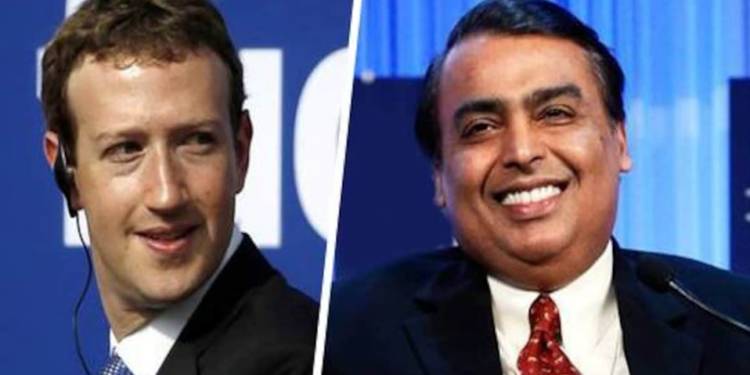American internet companies have always been eyeing for a bigger share of the pie in the Indian market. For American internet giants like Facebook, Google, and Amazon, the largest markets with a hunger for data consumption are North America, Europe, China, and India. The American and European markets are already saturated and the next big growth opportunity for the Silicon valley lies in China and India. Like others, Mark Zuckerberg is fully aware of this fact.
However, China has blocked almost every big American internet company through the Great Firewall (Censorship) and promotes domestic companies instead. This has resulted in the exponential growth of companies like Wechat, Alibaba, which became giants in their own measures.
So, the only market where growth potential lies in India. Therefore, all American Internet giants are betting big on India. This 1 billion people strong consumer market is most important for Mark Zuckerberg, the owner of Whatsapp, Instagram, and Facebook.
In the last few years, the total time spent by users on Facebook has declined and the number of users also moved southwards. This has worried the Zuckerberg-led internet giant which owns the most popular social media and instant messaging platforms. Facebook management is aware that the solution lies in the Indian market, which boasts of 750 million users in Facebook-owned apps. India is arguably the only big market for Facebook where the company can expect positive growth figures for the next few years.
Therefore, Mark Zuckerberg, the CEO and founder of Facebook, is eyeing the Indian market. He made the first attempt back in 2014 with the ‘Free Basics’ project. He formed a company called Internet.org in collaboration with Reliance Communications, Anil Ambani’s bankrupt telecom venture, to provide internet for free in rural India for the use of some basic websites and apps, primarily Facebook. But, the Department of Telecommunication (DoT) flagged the project under concerns for ‘net neutrality’, and the venture ended in 2016.
Since then, Zuckerberg tried to collaborate with many Indian players to enter the rural Indian market, but none of them reached the final stage. However, around the same time when DoT ended its dream to enter the Indian market, a domestic company raged in the Indian telecom space with three months of free services. Today, after 3 and a half years of its entry, Reliance Jio is the largest telecom player in India with more than 36 crore customers, the majority of whom are based in rural India.
The target marked by Zuckerberg is the massive chunk of rural Indian consumers, as, even in India, the urban market is saturated, but the rural market has a huge growth potential. Therefore, for Facebook, Reliance Jio was the best bet and he did not let this golden chance slip away.
A few weeks ago, Facebook bought 10 percent stake in Jio with an investment of 6 billion dollars, taking the value of the company to 60 billion dollars. The alliance with Jio, the largest telecom player in rural India, gives Facebook an opportunity to grab this market and expand its services like Whatsapp.
Whatsapp, which has more than 400 million users in India, launched a digital payment service a few months ago. It aims to compete with UPI based digital payment platforms like PhonePe, GooglePay, and Paytm.
Jio will soon launch Jiomart, an app that aims to bring crores of Kirana store owners and their customers on one platform, and this e-commerce facility would use Whatsapp Pay payments service.
This would put user data of crores of users at Facebook’s disposal, which the company would further use to develop new apps and services. Zuckerberg sees tremendous value in Indian data, and so does Mukesh Ambani. Moreover, this would overall push the user growth of Facebook’s apps in the positive growth territory, which is essential to maintain investors’ confidence.
Zuckerberg knows this very well that as long as the number of users and growing, the investors would put money in the company, as, for investors, all these new users are potential consumers of other services that the company would develop in the future. Therefore, at this point in time, the user growth coming from the Indian market is more important for Facebook, not the revenue growth, which is abysmally low in the Indian market.
India’s digital space is growing exponentially and every company, right from Amazon to Google and Facebook, are investing billions of dollars to take the first mover’s advantage and expand their base in the Indian market. For these companies, the Indian market is essential to compensate for the saturation of the western market and keep the clock going. Therefore, India is now the next big platform for the digital revolution.




















